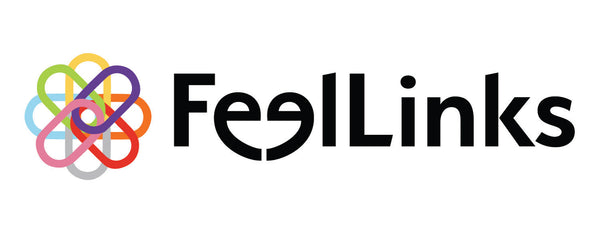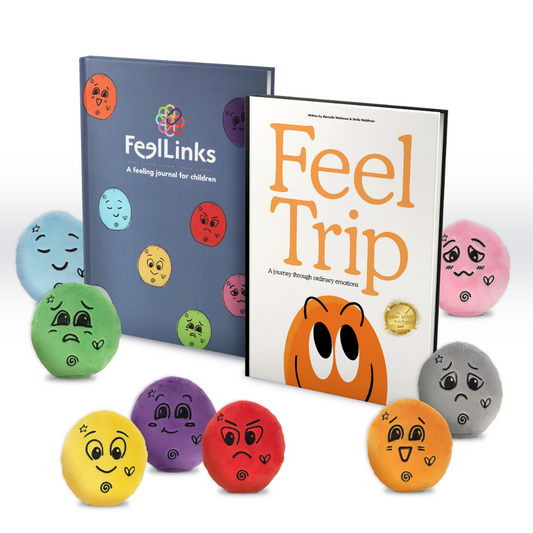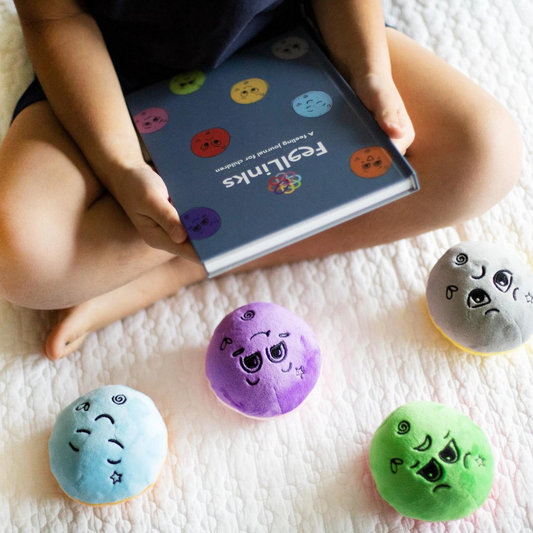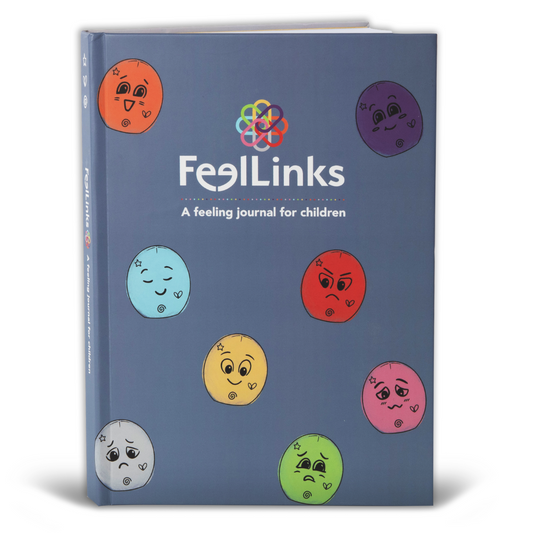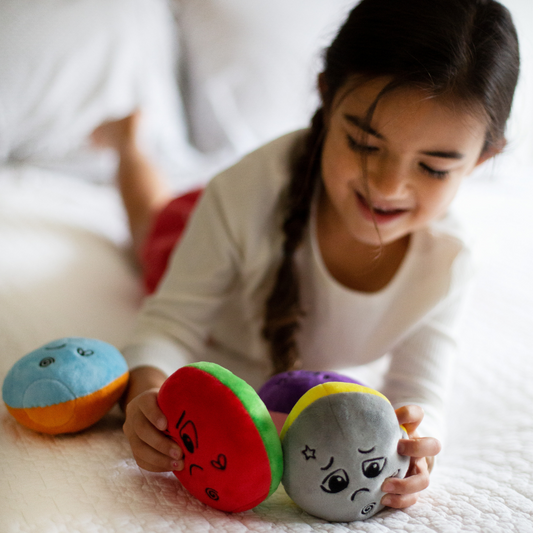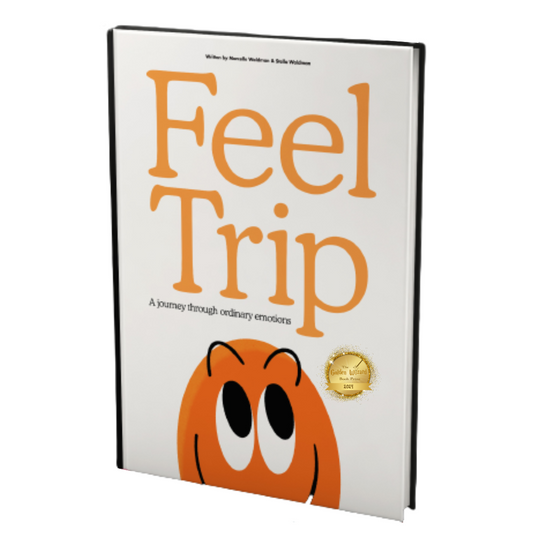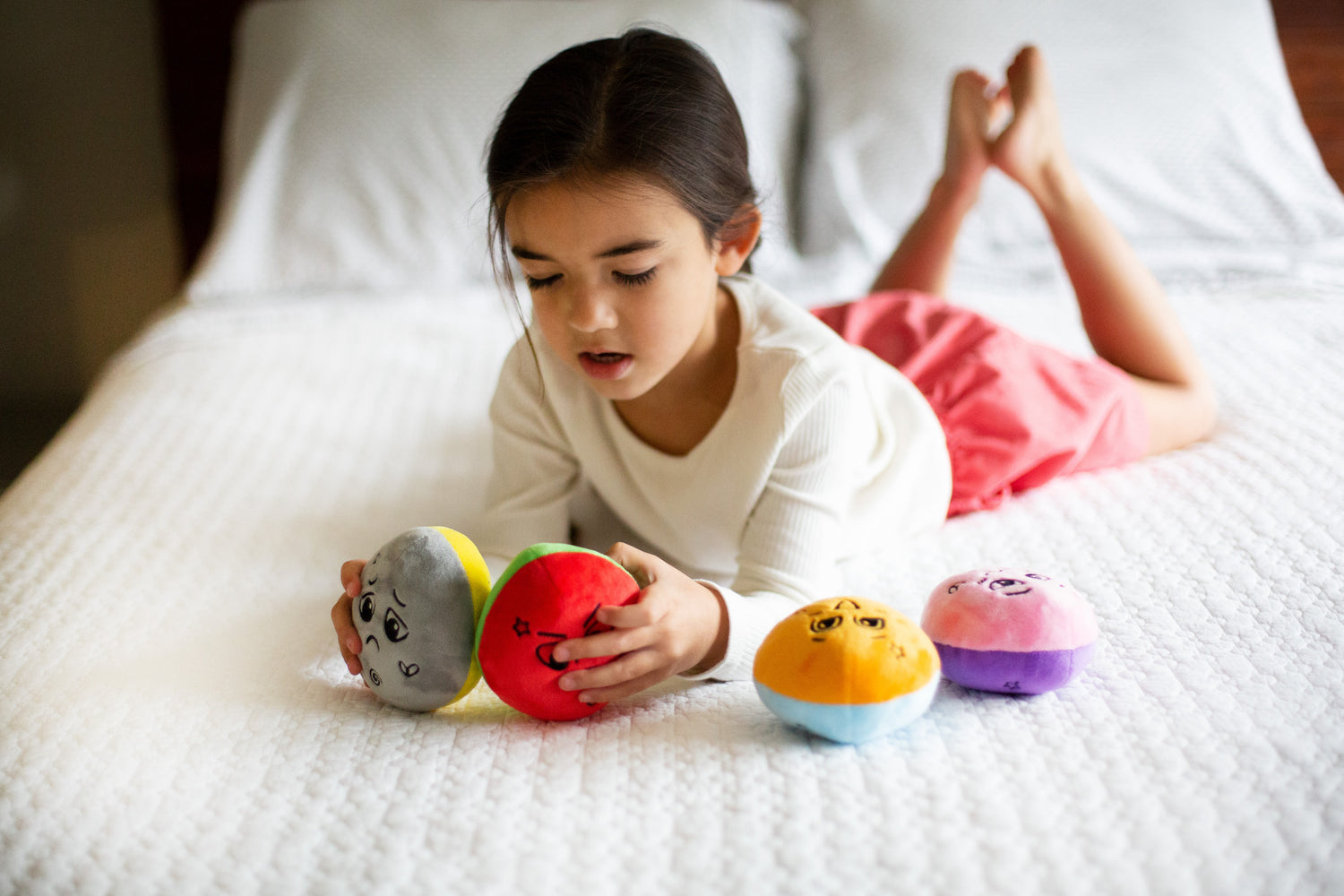
About
About
FeelLinks is born…
FeelLinks mission is to create a kinder, more compassionate, and inclusive world through resources that nurture and strengthen each individual child's social-emotional connections and confidence.
FeelLinks, founded by Marcelle Waldman, is dedicated to nurturing social-emotional skills in children. As a kindergarten teacher, Marcelle recognized the need for tools that promote emotional intelligence—skills like empathy, self-awareness, and emotion regulation. After creating her own curriculum, she was inspired to share these tools with a broader audience.
FeelLinks focuses on helping children develop crucial life skills that contribute to long-term success in school and beyond. The business is expanding through partnerships with schools, businesses, and organizations to promote the importance of social-emotional learning. Begin your child’s journey toward emotional growth today with FeelLinks' hands-on resources.
Learn more about partnering with us here.
*For more, please read my Deeply Personal Story.
With Gratitude,
Marcelle Waldman, BAEd
FeelLinks Founder, Youth Mental Health First Aid Certified, Parent and Community Educator, Parents of Adolescents and Teens group leader, Mental and Emotional Health Advocate and avid community volunteer

________________________________________________________________
What Is Emotional Intelligence?
Emotional intelligence is the ability to identify, understand, and manage your own emotions and those of others. It involves perceiving, using, understanding, managing, and handling emotions. Individuals with high emotional intelligence recognize their feelings, understand their meanings, and see their impact on others.
Strengthening emotional intelligence supports growth in:
Self-Awareness: Understanding our own feelings helps us manage and respond better to ourselves and others.
Self-Management: Also known as self-regulation, this is the ability to manage our actions, thoughts, and feelings flexibly to achieve desired outcomes. It enhances our confidence and well-being.
Social Awareness: The ability to read others' emotions through their expressions, voice, and behavior fosters empathy and helps us respond appropriately.
Relationship Management: This combines the previous skills, enabling us to navigate social interactions effectively, influence others positively, and resolve conflicts.
Importance of Understanding Feelings
Labeling our feelings allows us to identify and manage them effectively. When children can label their emotions, adults can better support their needs, and children learn to understand and support others as well.
Building emotional intelligence fosters a healthy well-being and promotes lasting benefits of: achieving personal goals, greater empathy, increased academic achievement, greater self-awareness, quality relationships, satisfaction at school and work, relating to others, and sensing the emotional needs of others*. Read more about emotional intelligence on my blog post.
________________________________________________________________
*References: Mayer & Salovey. (1990, 1997), Daniel Goleman. (1995), CASEL Framework. (2020), Yale Center for Emotional Intelligence, and Dr. Marc Brackett (2020)
Shop
-
FeelLinks Ultimate Feelings Bundle
Regular price $63.99 USDRegular priceUnit price / per$68.99 USDSale price $63.99 USDSale -
FeelLinks Dolls and Journal Set
Regular price $45.99 USDRegular priceUnit price / per -
FeelLinks Journal
Regular price $25.99 USDRegular priceUnit price / per -
FeelLinks Dolls
Regular price $25.99 USDRegular priceUnit price / per -
Feel Trip Children's Book
Regular price $18.99 USDRegular priceUnit price / per
FeelLinks Blog
-

🎄 Wellbeing During the Winter Whirlwind
With all the rush and the noise, the holidays do offer us a gentle reminder: our health and wellbeing matter, and so does the emotional wellbeing of our children.
🎄 Wellbeing During the Winter Whirlwind
With all the rush and the noise, the holidays do offer us a gentle reminder: our health and wellbeing matter, and so does the emotional wellbeing of our children.
-

As the Ladybug Flies… A Beautiful Connection Ta...
A chance meeting, a shared ladybug connection, and gifts of support
As the Ladybug Flies… A Beautiful Connection Ta...
A chance meeting, a shared ladybug connection, and gifts of support
-

Raising Resilient Kids: When We Step Back, They...
As parents, we want to see our kids happy, safe, and successful. It’s natural to want to smooth their path - but what if instead of clearing the way, we...
Raising Resilient Kids: When We Step Back, They...
As parents, we want to see our kids happy, safe, and successful. It’s natural to want to smooth their path - but what if instead of clearing the way, we...
